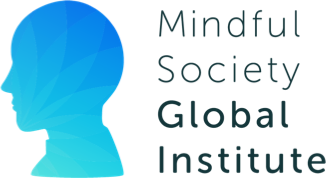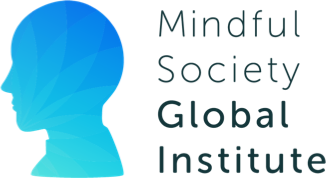8th annual virtual learning summit hosted by
Mindful Society Global Institute.

8th annual virtual learning summit hosted by
Mindful Society Global Institute.
![]() LIVE STREAM
LIVE STREAM ![]() JUNE 12 – JUNE 18, 2022
JUNE 12 – JUNE 18, 2022

8th annual virtual learning summit hosted by
Mindful Society Global Institute.
![]() LIVE STREAM
LIVE STREAM
![]() JUNE 12 – JUNE 18, 2022
JUNE 12 – JUNE 18, 2022
Receive event updates, FREE resources, and monthly insights about the field of mindfulness from Mindful Society Global Institute.
Our Summit Agenda has launched! Join 500+ practitioners and professionals applying mindfulness from around the world.
For a week long virtual summit from June 12 – 18, 2022, A Mindful Society will stream 27 learning and practice sessions consisting of LIVE interactive workshops with global leaders including Q&A, immersive guided practices and networking with a like-minded global community.
This all-in-one virtual learning summit will help awaken hope and see new possibilities in health, education, the workplace, environmental sustainability and our global community.
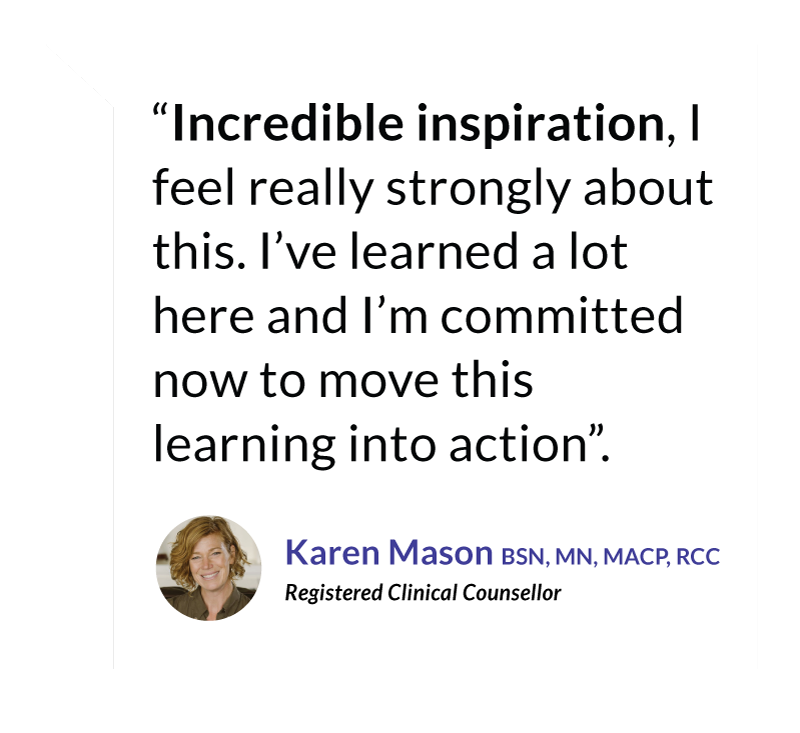
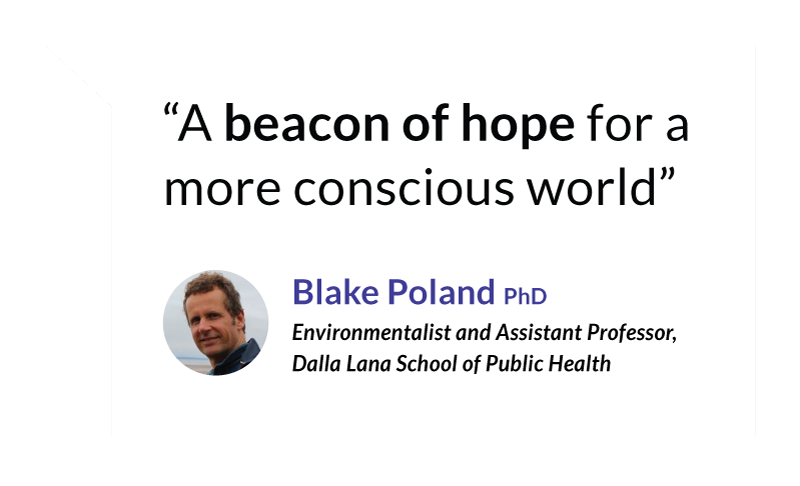
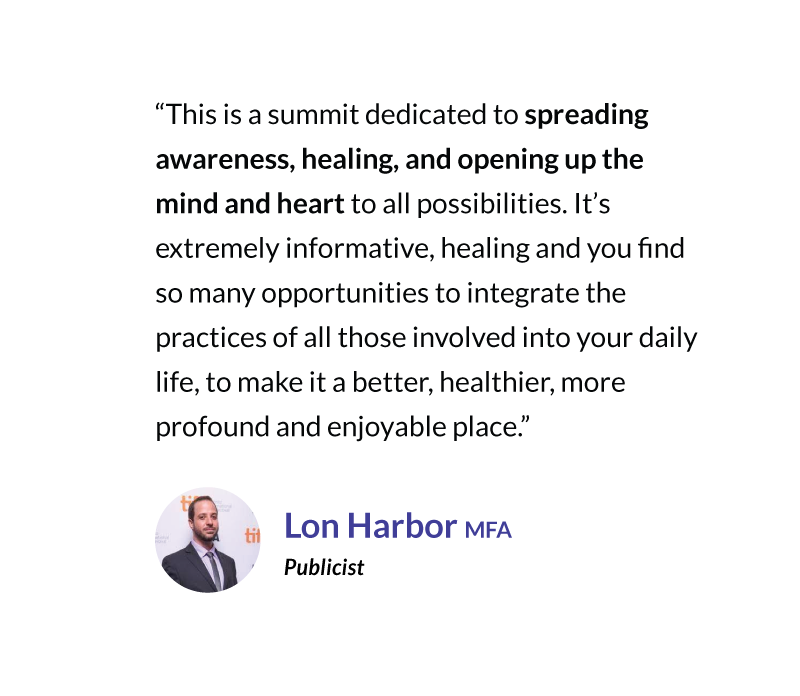
A week long virtual learning summit for practitioners and professionals interested in applying mindfulness in health, education, the workplace, environment and community settings.

Summit sessions are accessible to Los Angeles (PDT), Toronto / New York (EDT), UK / Euro time zones (GMT).
Launching the A Mindful Society 2022: Awakening Hope Virtual Learning Summit with a practice led by Anishnabe Nation Elder John Rice and opening remarks by Summit Director and Institute Chief Curator Michele Milan MA.
Climate change is a physical reality, demanding political and practical solutions. But its inner dimension, overlooked entirely by mainstream approaches, is a human crisis of relationship. Jamie's research and recent policy report outlines the relevance of mindfulness and compassion practices in addressing the endemic disconnection from self, others and nature at the root of the climate crisis.
In this session we will explore the cognitive and emotional foundations of conscious connection and discuss the potential for mindfulness and compassion practices to be developed into powerful enablers of reconnection, fostering both greater resilience and more appropriate responses to global sustainability crises.
Mindfulness is well established as a transformative practice for individuals – leading to greater wellbeing, resilience, clarity and energy for growth. The next stage for the evolution of mindfulness is to take it into the heart of our communities, placing its powerful possibilities for change directly into the hands of the people who can most benefit from it.
This session sets out a model for doing exactly this, developed by the UK mindfulness and coaching social enterprise Rising Minds. ‘The Inside Track’ is a new approach to teaching mindfulness in social purpose organizations and the communities they serve. It’s about supporting and sustaining the long-term resilience, leadership and creativity of social purpose organizations and all their stakeholders. Extraordinary insights can arise when people from diverse backgrounds come together to cultivate the same core human capacities.
This new approach is about two key stages:
1) Teaching the core principles and practices of mindfulness.
2) Giving people simple and effective tools to pass on that learning widely throughout their organizations and communities.
This is ultimately about empowering people in organizations and communities to co-create mindfulness-based programmes that work for them, in their particular situation. In the process, this helps people to sustain long-term mindfulness practices, and to be part of a vibrant community of practitioners. This can help organizations and communities develop as ‘whole systems’ the same core capacities that each of us can as individuals: resilience, self-determination, strategic effectiveness, emotional intelligence and cultural sensitivity. These qualities are more needed than ever at a time of major societal challenges – post-Covid recovery, the cost of living crisis, and climate emergency.
When the pandemic forced a sudden shift towards emergency remote teaching and transition into the online space, several long-standing issues and advantages of online learning were illuminated. These included the ongoing debate about the implications of online education for university teaching; systemic barriers of class, race, disability and access to technology faced by students; deepening feelings of disconnection and “attention deficit” among students in an increasingly technical and isolated world; and growing levels of anxiety and stress among students and faculty. Our rapidly changing and crisis-filled world seems to be crying out for new ways of thinking and being…as well as teaching. For contemplative scholars, the current juncture only heightens the need for contemplative practices in education, including those strategies that promote learners’ holistic PRESENCE.
If contemplative pedagogy is about challenging disconnection, the online world seems to run counter to its mandate. How does a seemingly “disruptive technology” fit into this approach that seeks awareness and attention? If contemplative learning is about coming into community and communion with each other, then how does being “remote” affect that? How can we achieve presence in the online space, in synchronous and asynchronous digital spaces?
Our panel discussion tackles these questions. Four university professors of diverse disciplines share their perspectives on integrating learning design and mindfulness practices that promote PRESENCE in online learning. Our brief presentations exemplifying contemplative pedagogical approaches are followed by an interactive discussion further inquiring:
• What is considered presence in online learning (contemplative perspective)?
• If presence is about authenticity and openness, holding space to connect with others, moving past distraction so that we can “be present” fully, then how do we establish and maintain that presence when technological setup fractures our attention and divides our teaching (and learning) selves?
• How does one create and maintain presence in the online classroom through mindfulness-based practice?
• How does one create that space in a virtual classroom that allows students to reflect, to become aware, to sit in silence and process when we can’t physically be there to create and hold that space?
This workshop will discuss (both empirically and evidence-based), the on-the-ground, frontline needs, and challenges youth are facing coming out of the pandemic. We will pay special attention to safety, containment, boundaries, and strength-based approaches in using breathwork to regulate nervous systems, the trauma-response and bring playfulness and equanimity to the youth we serve. We will look at structuring and best practices.
This practice will include Yin Yoga (gentle stretching) and Yoga Nidra. YIN yoga targets your deep connective tissues, like your fascia, ligaments, joints, and bones. It’s slower and more meditative, giving you space to turn inward and tune into both your mind and the physical sensations of your body. While holding poses for a longer period of time, yin yoga helps you stretch and lengthen those rarely-used tissues while also teaching you how to breathe through discomfort and sit with your thoughts. Yoga Nidra is a deep state of conscious awareness or "yogic sleep", which is a deeper state of relaxation with awareness. This state involves moving back and forth from conscious to unconscious states.
Inspired by the bystander intervention model, Mindful Advocacy integrates mindfulness practices and decolonized approaches to adapt and expand five de-escalation strategies: distract, delegate, document, delay, and direct. Traditionally, these five D’s of de-escalation have been community-based interventions to disrupt experiences of violence and harm (e.g., harassment, interpersonal violence, microaggressions) while maintaining community power and safety.
Mindful Advocacy aims to intervene and respond to instances, spaces, and interactions that maintain and/or replicate the violence and harm of white supremacy. The adapted approach utilizes determine, delegate, document, delay, and direct as its five core strategies. During our session, we will:
(1) experience mindfulness and grounding practices
(2) examine adaptable direct approaches
(3) review each strategy that can help us create inclusive, accessible, and supportive services, spaces, and systems (e.g., practicing direct compassion; resource and relational mapping to effectively delegate)
We examine challenges many of those living with chronic conditions encounter when consulting health care professionals to find solutions and support. We hear from them in our many mindfulness-based group encounters in which discussions of these harms have emerged, often adding to their trauma. The platinum rule: “to treat persons how they wish to be treated” can be hard to achieve for those living with complex chronic conditions, being treated in our current Canadian “siloed” health systems. The biopsychosocial and spiritual models of care are most relevant especially when clinically managing those with hard-to-treat conditions. Respect, dignity, equity, and compassion must be preserved in all patient encounters.
Training in Mindfulness for health care professionals provides insights in working with those with chronic conditions as well as nurturing compassionate communication and strategies. Attitudes inherent in Mindfulness practice are key to achieving competency in delivering person-centred care. Additionally, education in how to better work with those in the LGBTQ and BIPOC communities is urgent: inherent biases conferring stigma by treating health care professionals must be self-identified and mitigated.
Establishing universal precautions in communications in health care could reduce the harms that have been discussed in our patient programs and could be rooted in trauma-sensitive, trauma-informed and compassionate mindfulness communication strategies that we constantly practice as Mindfulness facilitators and practitioners. What these precautions could include will be discussed.
Mindfulness means living more fully aware of what is happening right now, along with an unbiased perspective towards whatever we experience – but is much more practical than that wordy definition. We practice settling, seeing our lives clearly – and making more practical and precise choices in how we live. Pop trends spin mindfulness as a quick fix or liken it to ringing a classroom bell, yet the true depth of the practice fundamentally changes how we relate to everyday challenges.
Mindfulness enhances moment-to-moment planning, problem-solving and emotional abilities, and most importantly can be developed through practice. Through building those traits, research suggests practical benefits for anyone struggling with ADHD. Mindfulness
can be life-changing, helping people with ADHD manage stress and reactivity that undermines care, allowing for more flexible and objective decisions, and building an ability to sustain new habits – all of which are vital in overcoming this complex medical disorder
of self-management.
Key Takeaways:
1. To define mindful care as an approach that builds self-awareness and emotional awareness, leading to relationship-centered, compassionate and successful care.
2. To describe ways mindful care incorporates into treatment of ADHD
across lifespan
3. To describe research regarding potential benefits of direct training in mindfulness meditation to foster self-regulation and executive function with and without ADHD
4. To demonstrate basic mindfulness exercises that can be immediately incorporated
into a daily practice
5. To outline accessible steps providers and families can take to be more mindful in approaching ADHD management
Explore the Eight Basic Needs mindfully, and how that awareness can impact our lives and awareness in this moment; bring renewed wisdom in relationship to others and possibly guide us with more ease to creating our place and finding our purpose in the world.
Exploring Indigenous teachings through an Anishinaabe cultural lens, seeking to let us live the good life - Ambe Minobmaadzidaa - in connection with and with a sense of belonging to all of creation.
1. To be seen in a good way
2. To be heard in a good way
3. To know that we are accepted and believed
4. To know that others have faith and trust in us
5. To know our place and purpose in the world
6. To feel secure, safe and at peace with one's self
7. To know that our existence is beneficial
8. To love and be loved
In this session I'll provide a description and explanation of eco and climate anxiety and grief, along with an explanation of how these can impact us in our daily lives and in relation to our mental health. Increasingly, therapists and counsellors are finding that clients are seeking help for these issues, and yet most therapists are not trained or equipped to work on them specifically. Given the increasing urgency and impacts of the climate crisis, we are faced with this issue and need to find ways to approach it both professionally and personally. As such, I'll provide an overview of some of the current research on compassion-based and nature-based therapies and their effectiveness for treating multiple mental health issues. By adding in trauma-sensitive mindfulness and contemplative practices to these approaches, I'll explain how they can work on conjunction with each other to provide an a new and effective method for working with these challenging emotions to develop greater resiliency and a reduction in anxiety and grief. A short sample practice will also be provided.
Suffering is universal, and death is inevitable. As a result of the COVID-19 pandemic, and the related collective trauma, there has been no shortage of grief and loss. Discomfort surrounding death and non-death related losses can block healing, especially when therapists feel pressure to fix something that cannot be fixed. When therapists approach grief and loss with presence, it allows clients to feel safe and supported in relationships on a neurophysiological level. In this context, presence is at the core of healing in grief counselling as well as enhanced alliance and outcomes.
Therapeutic presence is a mindful relational stance that encompasses the qualities of being engaged and receptively attuned in the moment, compassionately with and for the other, and in direct human to human contact, which promotes safety and growth. Self-care is a significant component of presence contributing to our ability to sustain presence and optimize engagement in the work of helping professions. As such, self-compassion supports the embodiment of presence and therapeutic presence is foundational to the cultivation of self-compassion. Both presence and self-compassion are necessary aids in the face of grief and loss.
This workshop will involve (a) a didactic approach to understanding therapeutic presence, and (b) experiential practices to cultivate therapeutic presence and self-compassion. An empirically validated model of therapeutic presence will be presented as a map to build and strengthen the skills of presence within self and with clients. There will be an exploration of the neurophysiological principles to create safety with therapeutic presence, based on Polyvagal Theory (Geller & Porges, 2014). We will share key mindfulness and self-compassion practices to help therapists cultivate presence and work through barriers to presence that may ensue with both therapists and clients struggling with grief and loss.
Early on in the COVID-19 pandemic, national surveys of Canadian K-12 educators (Sokal, Trudel, & Babb, 2020) were already revealing high levels of educator exhaustion, educators withdrawing from their students, and significant declines in classroom effectiveness. Not surprisingly, these findings mirror the rates of exhaustion, burnout, and low morale pervasive across the caring professions—even prior to the pandemic.
Given current realities, as a teacher educator longing to support K–12 educators/caring professionals in reconnecting with and deepening their capacities for care and compassion, I have found powerful inspiration and resonance in Lavelle and colleagues’ CourageRISE framework for building relational cultures of practice (Lavelle, Vigna, Walsh, & Porter, 2021) interwoven with Makransky and colleagues’ Sustainable Compassion Training (SCT) (see, for example, Condon & Makransky, 2020, 2021). In combination, these frameworks draw upon ancient wisdom and spiritual traditions integrated with current, multidisciplinary theories and research that situate the self, others, and systems within relational contexts that interrupt dominant individualistic/self-help contemplative cultural patterns. These frameworks propose alternative, sustainable, and inclusive pathways of counter-oppressive awareness, healing, re-visioning, and community solidarity—adaptable for both secular practitioners and practitioners from varied spiritual and religious traditions.
This session will briefly elucidate the two frameworks; engage participants in contemplative exercises that make it possible for them to feel what it is like to be held in a loving field of care (a principal obstacle to compassion cultivation) and from which it is possible to deepen in care for themselves and extend care to others; share and discuss examples from K–12 educators/caring professionals’ personal, social, and systemic responses to their pedagogical explorations with these frameworks.
This workshop will introduce the key concepts and practices of Mindful Self-Compassion (MSC). MSC is a science-backed meditation practice that supports and protects mental health. Research shows self-compassion is strongly associated with emotional wellbeing. Practicing self compassion can help you cope with life challenges, lower levels of anxiety and depression, and increase healthy habits. Don't be deceived, self-compassion is NOT about self-pity. On the contrary, this practice helps you to cultivate the inner resources to thrive, especially during difficult times.
During this workshop you will have the chance to immerse yourself in some of the foundational practices and exercises of mindful self compassion. The content of this workshop is based on the 8-week MSC program developed by Kristin Neff & Chris Germer. This workshop is offered by a Trained MSC teacher.
Even as the pandemic winds down and we enter a “new normal” how can we ensure that we and our communities emerge from this time more resilient than ever? Join Dr. Chris Willard as we explore the foundations of resilience and post traumatic growth, looking to positive psychology, spirituality, neuroscience and mindfulness as we explore tools that have boosted human resilience in the face of adversity for generations. This workshop will include many experiential exercises along with simple takeaway tips for yourself and your communities, as we enter this new time.
As we strive towards inclusion, social justice, and the compassionate view that every single person matters, it's vital to address and heal the myriad ways women unavoidably internalize the sexist and misogynistic attitudes inherent in patriarchy. The archaic and invalid view that the female gender is lesser and must be dominated by men continues to permeate our world on so many dimensions, from discriminatory laws and social norms, to terrible violence inflicted on women and girls, to the powerful and unseen inner conditioning of our hearts and minds. Even when we intellectually believe in gender equality, never-the-less we all have patriarchal wounds embedded in our ancestry, lineage and life experiences that condition women to disconnect from their authenticity, negate and diminish themselves, lose their voice, and relinquish their power to others. The fact that women suffer from 2-3 times more anxiety and depression than men reflects the chronic suffering of this wounded sense of self. In this precarious time of such world-wide polarization, aggression and uncertainty, more than ever we need the wisdom and strength of every women's intelligence and gifts to help guide our way a world with greater compassion, freedom, health, and sustainable planetary peace.
Based on a successful pilot study and class I've been teaching for over 20 years, the purpose of this workshop is to bring the light of awareness to the common ways women's internalized misogyny and sexism plays out in our hearts, minds and behaviours, learn specific mindfulness practices that diminish the power of these oppressive beliefs and habits, and learn to accept and fully inhabit our authentic self so we gain the confidence to fully empower ourselves to be all that we are. We will explore this through inner reflections and guided mindfulness practice. Participants will leave with specific practices that rebuild connection and trust in authentic self.
This session is an interactive case study of a pilot field experience project for students enrolled in a graduate mindfulness-based teaching and learning (MBTL) graduate certificate in British Columbia. The "Building Social-Emotional Resiliency (BSER) through Mindfulness in Key Organizations Serving At-Risk Populations in the Eastern Fraser Valley" project was designed to place pairs of MBTL students, supported by an MBTL alumni mentor, in key community organizations to implement a trickle-down mindful community approach in their teaching. Five sites were selected with key community partners, including the Ministry of Child and Family Development, the Chilliwack School Division, the Abbotsford School Division, Hope Transition House, and University of the Fraser Valley's Counselling and Student Wellness program. The students designed and delivered a short 3-hour pilot in early spring, followed by a more elaborate 12- or 24-hour mindfulness program later in May and June. These programs were intended to train the participants in mindfulness while teaching them skills to support other, more at-risk and vulnerable learners with whom they worked or had contact. The model was used to foster mindful communities through key agencies while enhancing access to mindfulness for those with less direct contact with mindfulness-based education. For the MBTL trans-professional teachers in training, the experience was designed to offer a more safe and supported way to learn to navigate organizational structures and contexts to deliver trauma-sensitive and -informed MBTL.
The project includes four key impacts or activities affecting:
a) practical MBTL teacher education;
b) models to cultivate mindful communities beyond mere individuals via pivotal organizations;
c) models using mindful communities to extend impacts to more marginalized or at-risk populations;
d) a research component examining "critical incidents" as learning moments for both MBTL teachers and teacher education
For Mindfulness Facilitators, Educators and Helping professionals:
This 30-minute practice session merges the two wisdom streams of Hatha Yoga and Mindfulness, and offers a guided guides mindful movement flow in a way that enhances self-awareness and enhances the mind-body connection.
The focus of mindful movement instruction is bringing awareness to the sensations in the body and noticing when the mind has wandered and then gently bringing the attention back to sensations in the body, intentionally cultivating greater awareness of the body, while noticing what is happening in the mind and emotions. The practice session will intentionally incorporate the attitudes of mindfulness and utilize the effective use of language that is invitational.
This session narrates the strategic visioning process a community organization (Mindfulness Hamilton) engaged in with community members to reflect on the needs of the community, consider emerging changes in the world, and source new ideas for how and who they might serve better.
Over the course of two virtual co-creation sessions and a set of reflective activities, we show how current experiences, challenges, and hopes of local mindfulness leaders were solicited and then explored through a future lens. In the first session, we worked with a set of emerging trends and 'signals' from the local and global context to prompt community members to imagine new services, approaches and offerings. Top ideas from the process were synthesized and during the second session participants developed strategies for implementing new ideas.
We aim to demonstrate the process, tools, and pedagogy for facilitating this organizational renewal process in a virtual setting. With intentional design, appropriate pre-work, rich artifacts, and supportive scaffolding for focused conversations, we believe it is possible to reimagine the future of mindfulness as a community.
Mindfulness practice promotes the fostering of contemplative environments. Yet, the everyday environments we take part in—and help to create—even as organizations dedicated to mindfulness can promote distractions, superficiality, and hyperarousal. How do we champion quiet, depth, and a more primordial sense of time?
In this case study I will share the aims of my Applied Compassion Project with the Centre for Compassion and Altruism Research (CCARE) at Stanford University School of Medicine. I am developing this project with various partners in school and educational settings. My project is supported by my mentor Monica Hanson of CCARE.
The intention of the project is to:
● create and enhance compassionate communities in education
● to create welcoming spaces where identity, voice and interdependence are cultivated
● to prevent and relieve suffering that arises due to loneliness, exclusion, othering
It is my hope to support educators, parents and students, in the classroom and at the system level, to recognize and honour our common humanity more fully. I firmly believe that when we act from the home base of compassion, toward self and others, we create a more inclusive society and support human flourishing.
I think this project is relevant and timely as we see our educators and families suffering due to the long reaching impact of the pandemic. We have been socially distant for over two years, and as a result we have witnessed increasing anxiety, loneliness, disillusionment and even fear of one another.
We have it within us to create spaces where we all feel safe, valued, seen and heard. We also have a responsibility to address issues of systemic racism and suffering related to discrimination with regard to gender, language, sexual identity and religion. Compassion is innate and it can be cultivated. It can be embraced as the foundation of society and a way of being that builds strong, caring and safe places to learn and thrive.
Film therapy, the therapeutic use of movies in psychological therapies, is a growing area of interest to therapists and researchers. This paper presents the MOVIE model of film therapy, a widely applicable, trauma-informed framework for working with film imagery and themes in individual or group therapy, counsellor education and self-help. Film or cinema therapy is a highly accessible and relatable method for many diverse client and student groups with benefits that include catharsis and emotional processing, greater ease of dialogue around issues, increased empathy, and interpersonal learning, engaging with new perspectives and learning skills. Following the model we mindfully observe and voice emotional and psychological responses to movie watching, identify how the imagery, characters, themes, and narrative symbolize personal experience and consider any new possibilities that emerged through re-authoring personal narratives.
Be transported to the 20-acre forest & nature preserve to experience the mindful nature immersion practices which help you P.A.W.S. (pay attention with your senses). Engaging the felt sense of Nature's sights, sounds, smells, touches and taste will transport you to an inner garden of lowered cortisol and ease in the body. Learning how to also "stand in the wind" like the interwoven treescape, you will begin to build inner resolve, resources and resilience. This session is a near-virtual-trip to the benefits of nature immersion when combined with mindfulness practices, which is the work Suzanne is doing at Patch of Heaven Forest Sanctuary.
This 60 minute session offers participants an opportunity to explore the enriching relationship of drawing and mindfulness and how they can support us to access our innate well-being, creativity and emotional resilience. Combining theory and practice the session will explore how the two disciplines relate through a variety of guided mindfulness and drawing approaches offering playful exercises for integrating mindfulness into a simple daily routine.
The session will reference and explore some core mindfulness principles and their application in drawing/creative practice, namely:
openness (beginners mind)
curiosity
kindness (non-judgemental awareness)
clarity/discernment (wisdom)
During the session I will demonstrate simple mindful drawing exercises for connecting into creativity and will offer a variety of approaches for building resilience, counteracting the judging mind and cultivating adaptive coping. I will identify some common obstacles to creativity and offer a small toolkit of methods for working through or releasing them.
To help place the led practices within a broader field of art and mindfulness practice, I will present artist’s work and mindfulness research related to the exercises covered as well as suggested further reading, workshops and courses.
The session will offer a toolkit of drawing and mindfulness approaches for integrating mindfulness into a daily routine to enhance well-being, creativity and resilience. The methods presented are playful and exploratory in nature and offer potentially new ways of seeing and relating to one’s experience.
The session is suitable for all levels of experience and background.
What to bring to the session:
A pencil or pen and paper (the back of an envelope to draw on will do!)
(Optional extras) Any drawing materials you have e.g. soft chalk coloured pastels, coloured crayons, felt tip pens, pencil sharpener, eraser.
This workshop will focus on Story Medicine, weaving together embodied mindfulness with indigenous story to bring the voices of indigenous archetypal women forward and linking them to compassion practices needed in the world today, showing the timelessness and relevance of these wisdom stories today for all people. This workshop will highlight the Annishinabe story of Skywoman, exploring its indigenous female heart medicine for reclaiming compassion and strength, bringing this powerful archetype to the forefront.

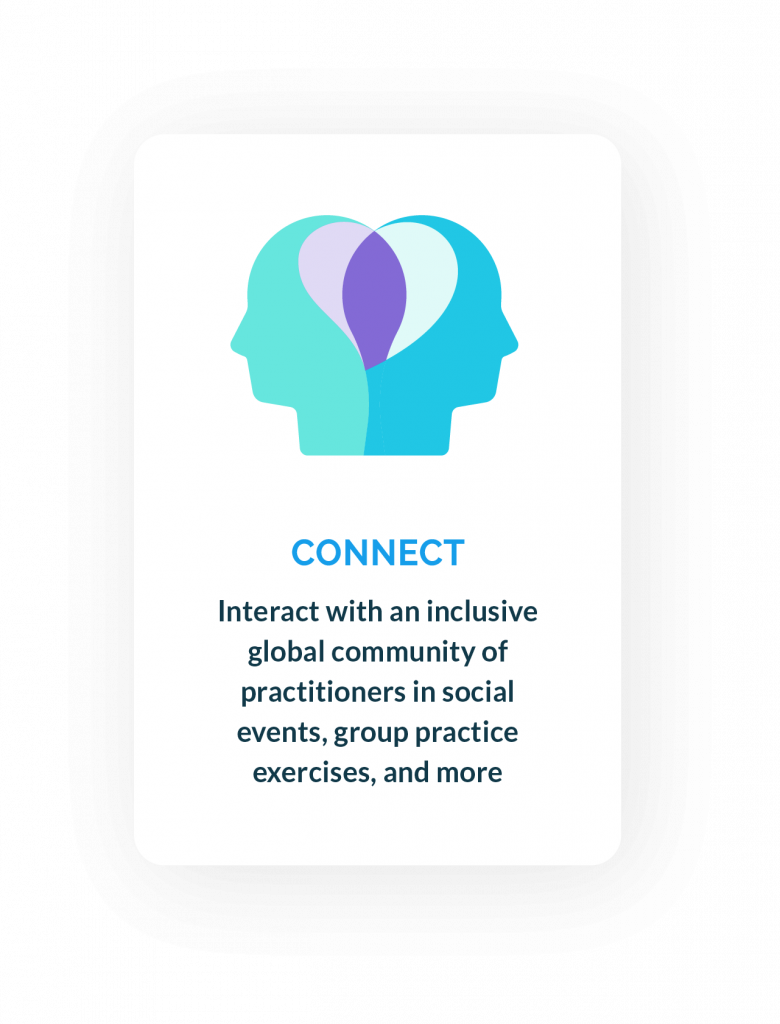
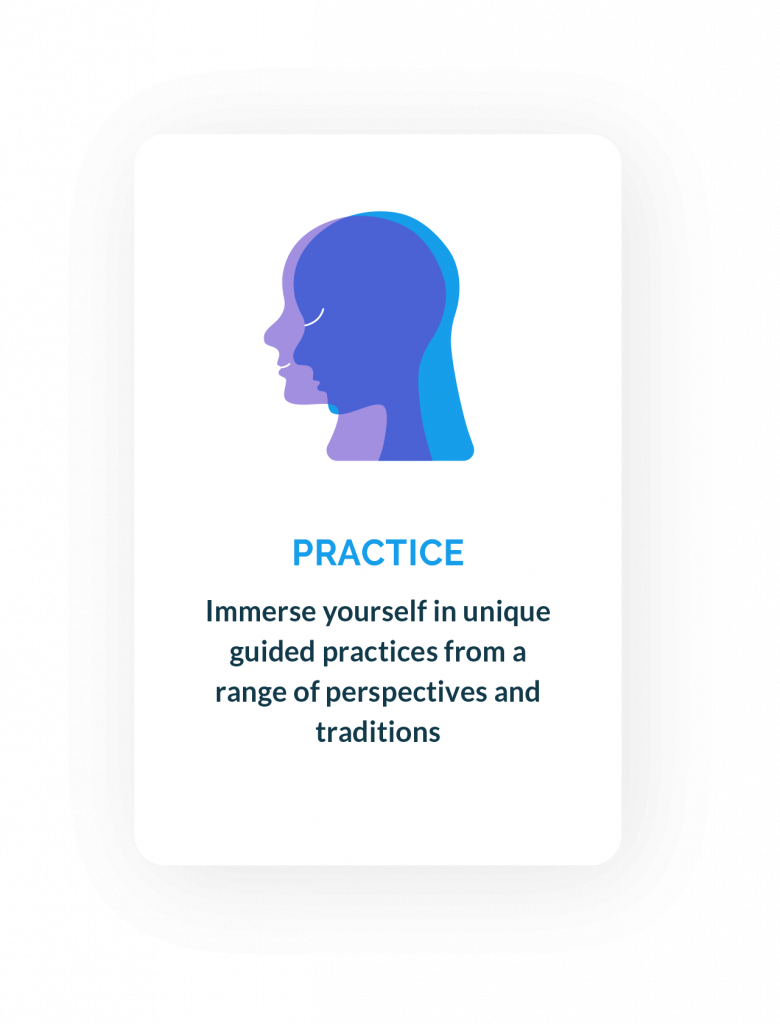
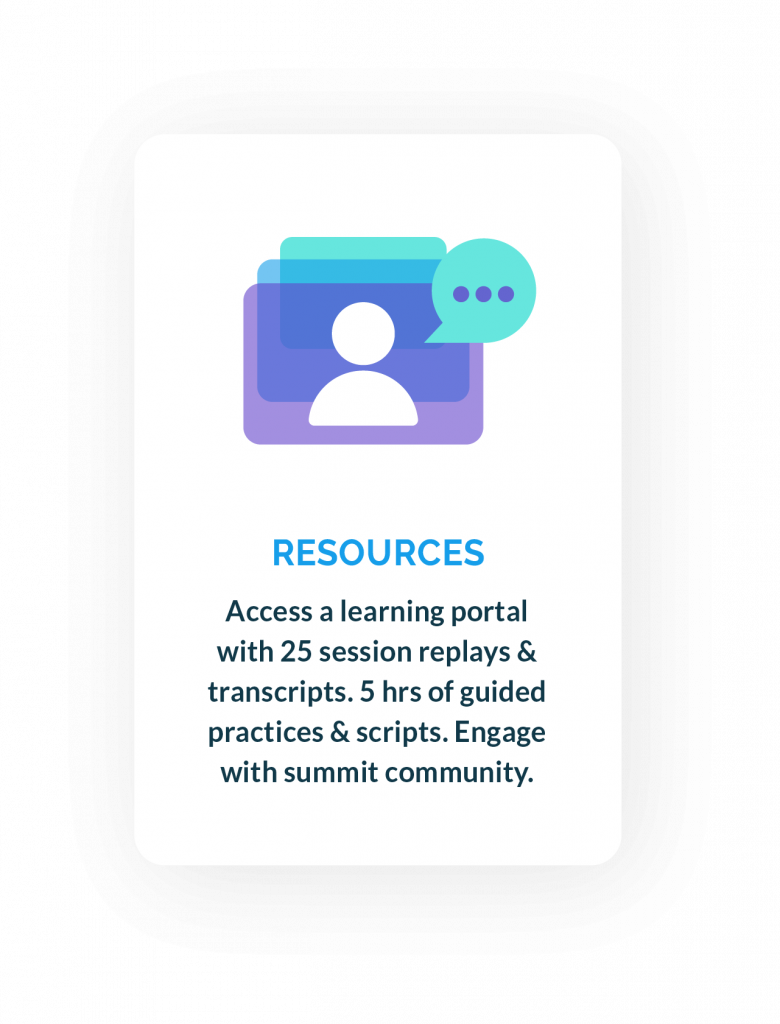
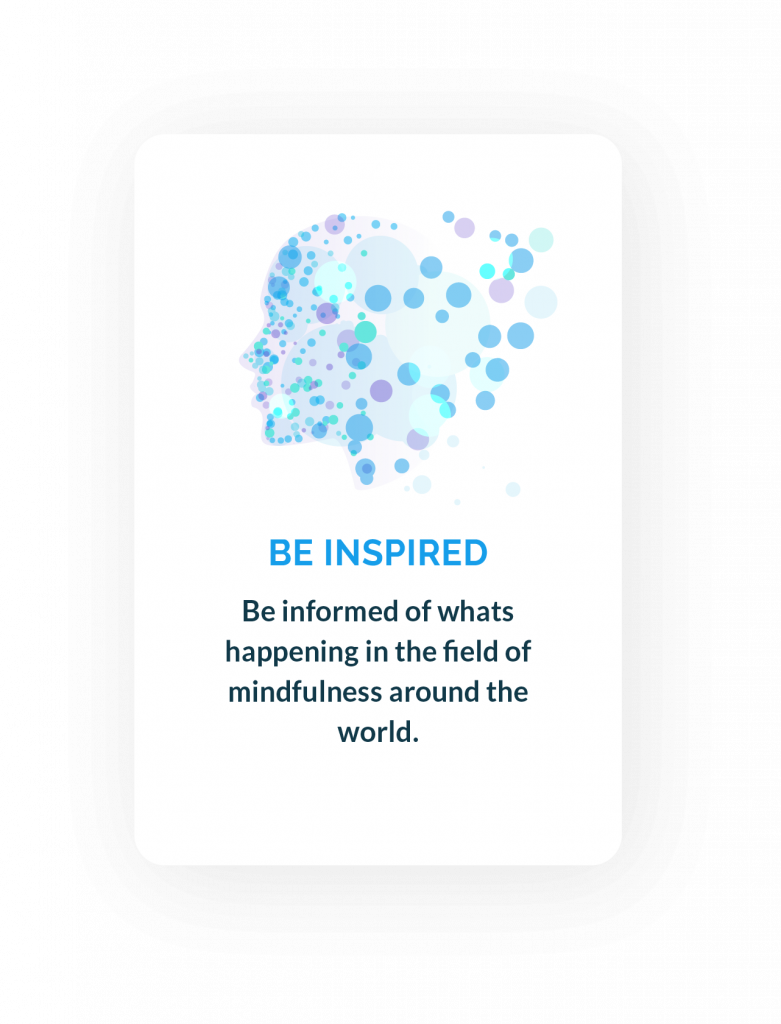
A learning community providing practitioners and professionals interested in applying mindfulness direct access to leaders in mindfulness, a like-minded community, and updates on the latest research and resources available.
A learning community providing practitioners and professionals interested in applying mindfulness direct access to leaders in mindfulness, a like-minded community, and updates on the latest research and resources available.
EVENT LOGISTICS
A Mindful Society will be a one-week learning summit featuring 35 leaders in the field of mindfulness in health, education, workplace and other settings. Sessions will be offered in an interactive LIVE online setting and all sessions will be available via lifetime access to replay, professional scripts and transcripts. There will be ample networking and social opportunities throughout the week to connect with the global mindfulness community.
June 12th - 18th, 2022
Online on Zoom
Lifetime access to all session replays including professional transcripts
Yes, anyone attending the summit will receive a certificate of attendance from the Institute for a total of 22 hours.
Yes! To make sure our programming is accessible, we offer scholarships to qualifying individuals who would otherwise be unable to cover the costs of our events, courses and membership. It is open to all individuals, but preference will be given to applicants requiring financial assistance, students, and marginalized populations. Scholarships are for one-year membership at the Institute which provides you full access to summits, courses and events. Fill out this form if you’d like to be considered for a scholarship.
If you require additional assistance please contact us [email protected]
Yes! All our summits, courses and events are included in the membership. Upon subscription to our membership you will receive access to the Summit in your personal Learning Portal.
GET INVOLVED
Interested in Sponsoring the event or becoming a promotional partner? Your support is what makes a mindful society possible. Contact us by clicking here to express your interest.
All tickets are non-refundable. The name on the ticket must be the name of each individual attendee. June 1st, 2022 is the final date by which you are eligible to transfer your ticket to someone else. Transfers must be completed by the original purchaser directly through [email protected] by June 1st, 2022.
After June 1st, 2022, all tickets are non-transferrable.
In the unlikely event that the conference is cancelled, we will refund all tickets. We will not, however, be able to refund other purchases people may make.
All listed speakers are confirmed -- however, sometimes life events such as sickness or death in the family prevent them from making it at the last minute. Speaker cancellations do not affect the cancellation policy. Purchase of a ticket indicates that you have read and agree to comply with this cancellation policy.
This policy is subject to change; all registered attendees will be notified of any changes.
You should choose a search result page. You can choose the page from the Theme Options > Events > Event Search Results Page option.
This site uses cookies. Find out more about cookies and how you can refuse them.
